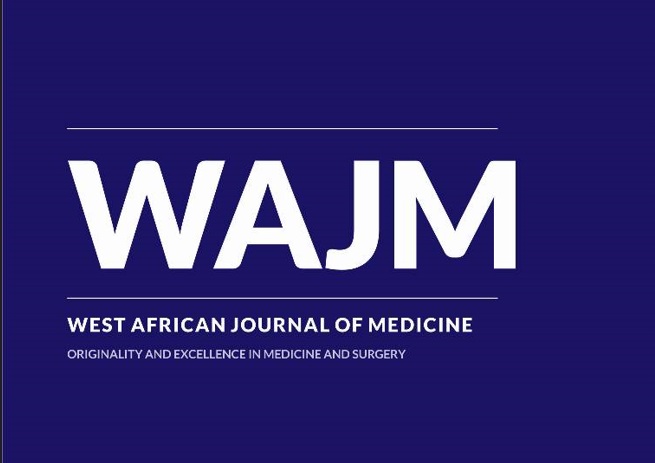ORIGINAL: Evaluating Postgraduate Surgical Education Experience, Professional Satisfaction and Personal Well-Being: A Cross-Sectional Survey of Trainees in A Low-Middle Income Country in Sub-Saharan Africa.
West Afr J Med. 2021 Jan; 38(1): 75-79. PMID: 33463711
Keywords:
Surgical, residency, training, satisfaction, tertiary healthcare, workload, clinical competence, mentoring, developing countriesAbstract
Background: Education at the postgraduate level is important in grooming competent specialists in different fields of surgical care. This study aimed to evaluate the training experience, professional satisfaction, and personal well-being of postgraduate surgical residents in northern Nigeria.
Subjects, materials and methods: It was a cross-sectional survey of 157 medical doctors enrolled for a minimum of 6 months in surgical residency training in tertiary hospitals in the northern zone of the country. All participants filled a pre-tested questionnaire and their responses were analyzed using Statistical Package for the Social Sciences version 20.
Results: The respondents had a mean age of 34.4 ± 4.8 years. Thirty-two (20.5%) agreed that there was a balance between their training needs and rotation for clinical services. There was a marked disparity between the median time allocated for non-ward-based training activities (4.0 hours each per week) and the average time allocated for research activities (1.0 hours per week). Although 89 (57.4%) and 82 (53.3%) reported fair satisfaction in their professional role and private life respectively, a larger proportion expressed poor satisfaction with their participation in recreational (107 [68.6%]) and social activities (90 [58.4%]). One hundred and seventeen (74.5%) stated that a high level of stress was associated with their training.
Conclusions: The surgical residents experienced relatively more training on patient management than on research work. Although their educational experience was associated with a high level of stress in majority of them, most of the trainees expressed fair satisfaction with activities in their professional role and private life.


